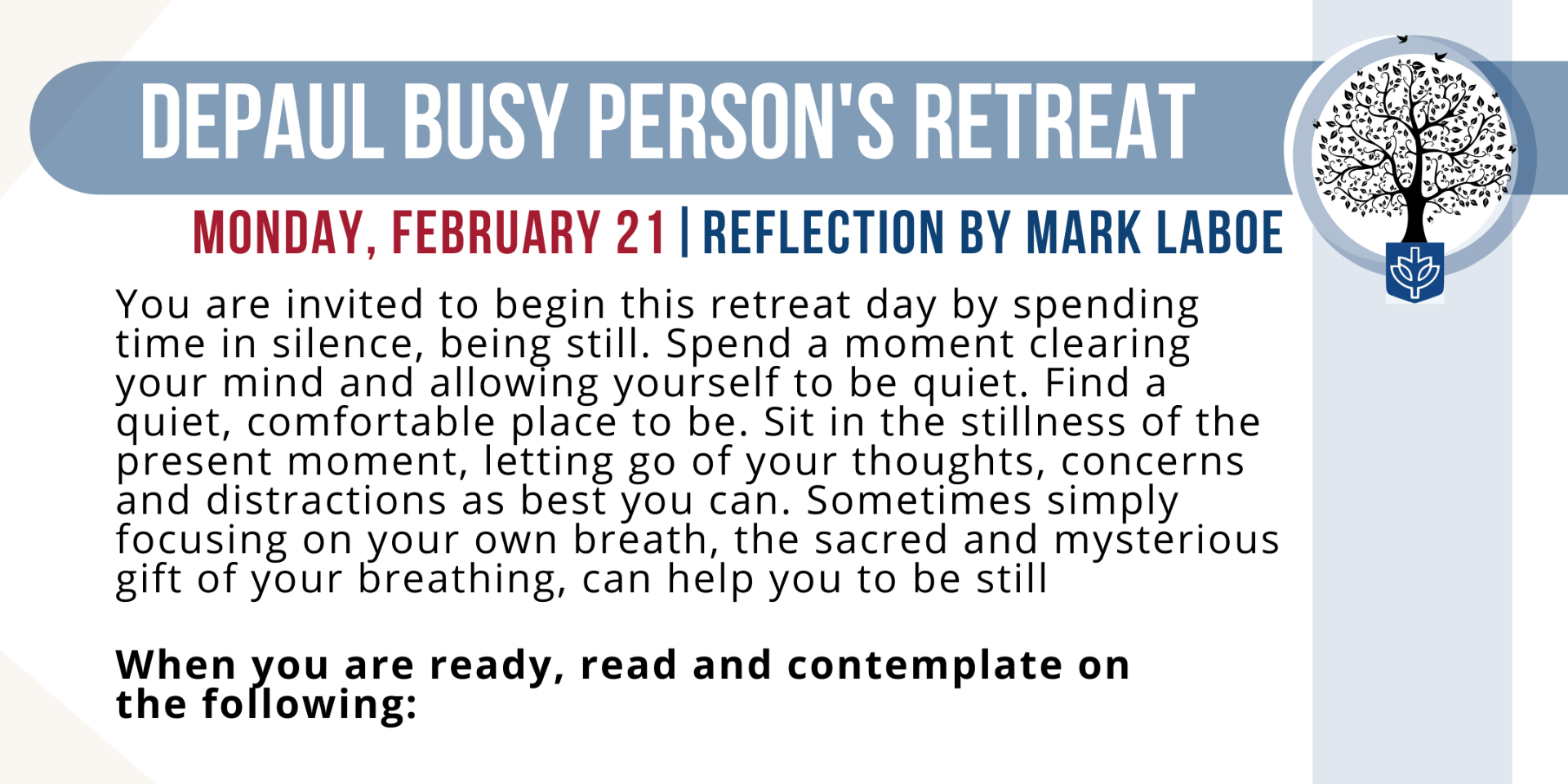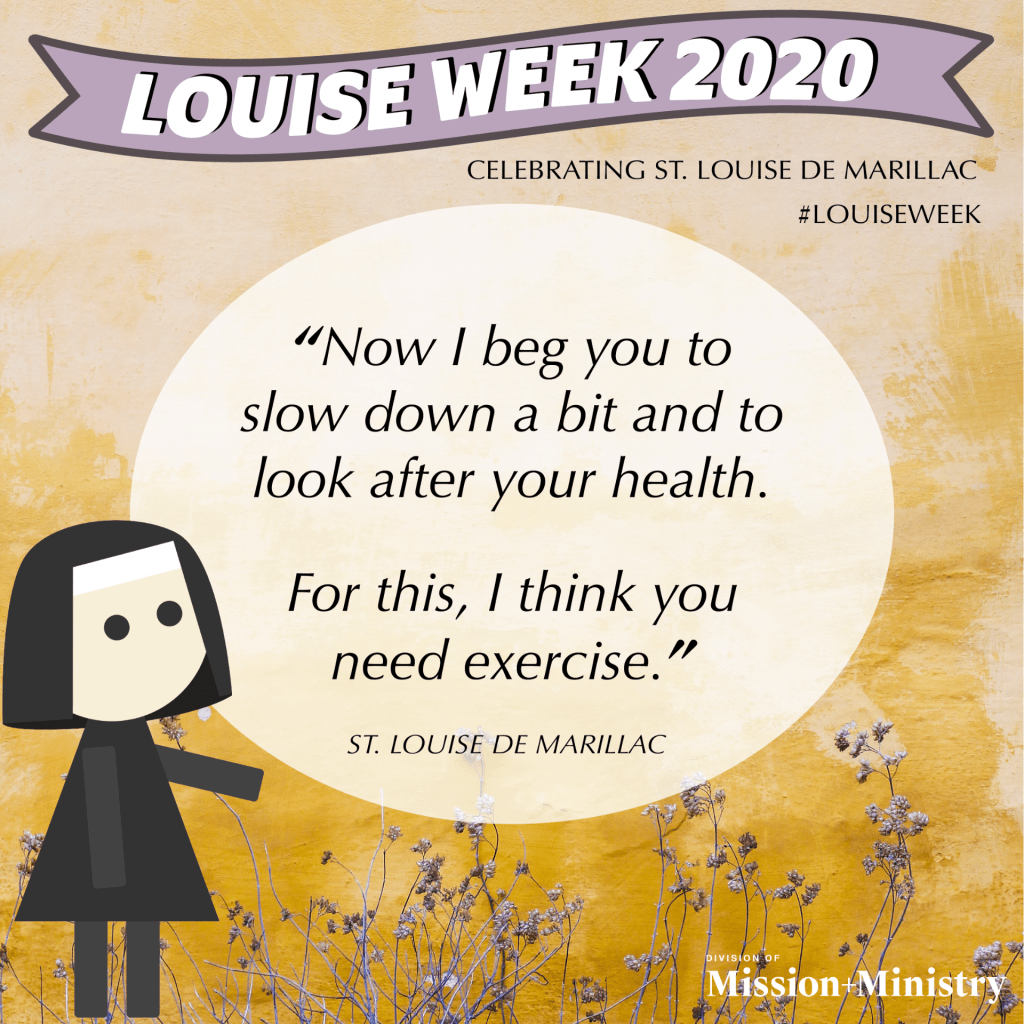 We must be full reservoirs in order to let our water spill out without becoming empty, and we must possess the spirit with which we want them to be animated, for [we cannot] give what [we do] not have.[i]
We must be full reservoirs in order to let our water spill out without becoming empty, and we must possess the spirit with which we want them to be animated, for [we cannot] give what [we do] not have.[i]
There are times at DePaul when we think working in a “Vincentian” way means remaining tirelessly active, without regard to our own needs or what is actually effective. However, this is decidedly not what Vincent de Paul taught. In addition to the quote above, Vincent wrote to Louise de Marillac circa 1632, “It seems to me that you are killing yourself from the little care you take of yourself.”[ii] Their correspondence often included encouragement in both directions for tending to their mutual health and well-being.
We have learned much over the past couple of years about the importance of self-care and of remaining healthy. The pandemic has forced us to reconsider and reflect on work-life balance norms and habits as well as what it means to work effectively.
There are many ways in which hyper-activity can be harmful to us individually and as a university community. Sound decision-making and the fostering of innovation are far more difficult when we are tired or feeling burned out. We are also much less likely to cultivate the quality relationships that make for a supportive environment and that reflect hospitality and care for others, both of which are so essential to the “Vincentian personalism” we value. We may lose touch with the deeper sense of meaning and purpose that motivates our work. Furthermore, workaholism and the absence of self-care can accentuate an ego-driven pride within us about working longer and harder than everyone around us—and this serves no one in the end. When we are always busy, what we are modeling to others, particularly the students we seek to educate and serve?
In contrast to such a worker-bee mentality, Vincent’s image of the reservoir may serve us well. Sustained and quality work during busy times often requires us to “dig deep,” and therefore it is essential that we maintain healthy reserves to draw from. Our relationships are vital sources of energy and support when we face vexing problems, and therefore cultivating friendships and collegial networks is a life habit that makes our work more effective and sustainable. We might also imagine the life-giving reservoir replenished by remaining connected to a shared sense of mission or purpose through regular moments of reflection.
As we come to the end of the summer months, the intensity of our work and task lists are no doubt beginning to build up again as we approach the new academic year. Might we transition into the fall with a plan to integrate self-care, relationships, and ongoing reflection? Perhaps we might even work together with others to shape our collective organizational culture in a way that models these things, thus benefitting all in our community, including the students we serve.
One thing will remain certain: any mission worth working toward is not a solo act. We will achieve it only by regularly renewing ourselves through rest, reflection, and friendship—and with some intentionality these things can certainly extend well beyond the summer weeks!
- What is a regular habit of rest or reflection that can enrich your ability to be creative and to remain energized in the workplace?
- How might you integrate the cultivation of relationships more intentionally in and through your work?
- What might you do—even for a few minutes a day—to remain rooted in and nourished by a deeper sense of the mission and purpose that sustains your work?
Reflection by: Mark Laboe, Assoc. VP, Mission and Ministry
[i] Letter 1623, “To a Seminary Director,” n.d., CCD, 4:570. Available online at: https://via.library.depaul.edu/vincentian_ebooks/29/.
[ii] Letter 95, “To Saint Louise,” n.d. [c.1632], CCD, 1:145. Available online at: https://via.library.depaul.edu/vincentian_ebooks/25/.







